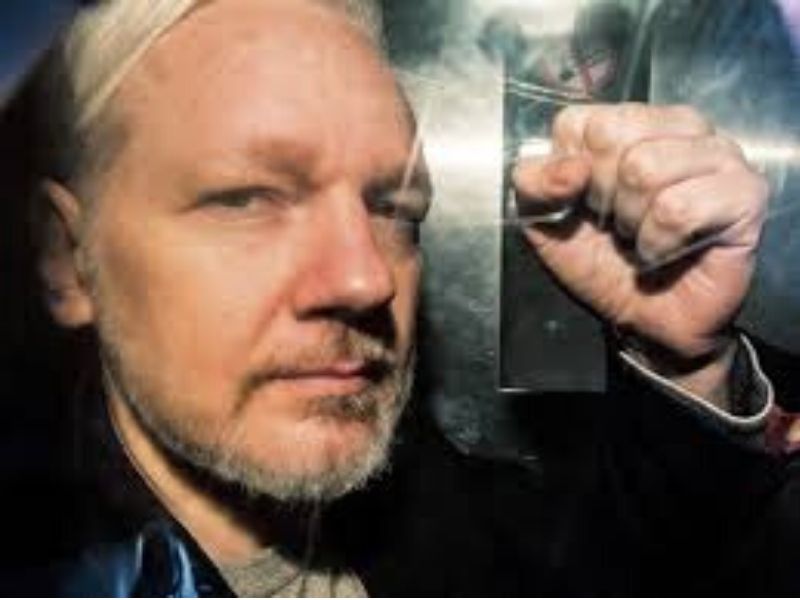Reporters Without Borders has criticised the latest move by the US Department of Justice against Julian Assange after it issued a new indictment against the Wikileaks founder that “broadens the scope” of the hacking allegations he is facing.
Describing it as “highly unusual”, the press freedom NGO pointed out that the new indictment, which supersedes the others, widened the “scope of the conspiracy” claimed in the hacking allegations filed against him.
Assange is facing extradition proceedings in the UK after the US Department of Justice filed 17 counts under the Espionage Act and one charge under the Computer Fraud and Abuse Act (CFAA).
The new indictment did not add new charges but expanded the scope of the CFAA charge and changed the evidential basis of some of the other charges against him, RSF said in a statement.
The NGO, which has been closely monitoring Assange’s case since the very start, pointed out that it was “highly unusual” at this “late stage” in the extradition case.
.@rsf_en's full reaction to the US government's new superseding indictment against @wikileaks founder Julian Assange – which seems intended to undermine his defence and divert public attention from the press freedom implications of his case. https://t.co/TChXE2xn9L #FreeAssange
— Rebecca Vincent (@rebecca_vincent) June 30, 2020
“The superseding indictment is the latest in a long series of moves by the US government to manipulate legal loopholes in their targeting of Julian Assange, to undermine his defence, and to divert public attention from the extremely serious press freedom implications of his case,” RSF Director of International Campaigns Rebecca Vincent said.
The timing was also questioned by Assange’s lawyer Mark Summers in an administrative hearing in the UK on 29 June and he expressed surprise that the defence team had learned about the indictment through the press. The new indictment had not yet been sent to Assange’s lawyers or the court or been formally filed in the UK proceedings, the NGO said.
Meanwhile, Assange continues to be held at the high-security Belmarsh prison with an ailing health condition which has even led him to miss a hearing earlier in June, raising further concerns about the state of his health and strengthening calls for him to be released, especially in light of the potential exposure to COVID-19.
Last month, a group of 11 current and former statesmen from Europe and the US wrote an open letter to the Lord Chancellor and Secretary of State for Justice Robert Buckland and UK Commons Justice Committee Chair Bob Neill, asking for Assange to be released into home detention with a 24-hour monitoring ankle bracelet.
The politicians supported an urgent appeal by Australian MPs Andrew Wilkie and George Christensen who asked the British authorities to urgently reconsider granting Assange monitored home detention.
The Wikileaks founder has been charged for publishing the Afghanistan and Iraq war diaries and US embassy cables – important documents that many journalists around the world used. The War Diaries provided evidence that the US Government misled the public about activities in Afghanistan and Iraq and committed war crimes.
RSF had previously expressed concern regarding the US government’s lack of evidence for its charges against Assange and believed Assange had been targeted for his contributions to public interest reporting.













